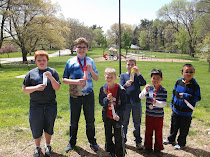I was watching the 2014 FIDE Candidates tournament in Khanty-Mansiysk, Russia during the period of time I was noodling around with ideas and a couple of games that world number 2 player Levon Aronian played caught my eye. Aronian lost to the tournament winner Viswanathan Anand in the first round and resigned when he was about to lose a piece. I saw how Aronian was going to lose the piece but it seemed he would get a couple of pawns. I set up the position against a chess computer and had a lot of trouble winning the game the first couple of attempts until I thought I got the hang of it. At the end of the tournament, Aronian lost yet another game, this time to Sergey Karjakin. This time it was clear to me why Aronian resigned - Karjakin was going to queen a pawn and even though Aronian's pawn was one move away from making a queen for him, some well-placed checks by Karjakin would be able to stop the pawn dead in its tracks. I played this position against the chess computer and easily won the game.


Left: Aronian-Karjakin with White to move and Black to win.
Right: Anand-Aronian with Black to move and White to win.
Aronian resigned both of these positions in the recent Candidates tournament but for lesser players they are worth playing out.
The two positions got me thinking I could spend the spare two hours after the morning tournament in the park by going over them for whoever wanted to show up. I called it a 'minicamp' and made a flyer with the positions and mentioning what I was going to talk about. My idea was I’d explain how to win the positions for a short time and then pair the players off to practice playing the position out from each side. In the week leading up to the tournament I got a lot of positive feedback from parents about the minicamp and finally it was time to see how the idea worked in practice.
The morning tournament ran well enough. The weather was weird in that it was so cool under the covered shelter to the point of the players wanting sweatshirts and jackets from their parents but so warm when they left the shelter that they ripped off their sweatshirts and jackets. The tournament finished, everyone broke for lunch and at 1 I started going over the simple position where the queen had to stop the pawn.



Under the shelter the players were dressed for winter and ten feet away in the sunshine everybody looked warm...
Once we had finished our discussion of the position, I had the players pair off and asked them to try to win and defend the position from either side. A few players did just that but all of the beginning players had no interest in playing the position, they just set up the boards and starting playing chess. It wasn't what I had planned on, but I very rarely see a reason to force people to do things they don’t want to do and I didn't see a reason to do it here either. I went over the position with the more advanced of the participants, and then we went over the second more complicated position by ourselves as the beginners kept on playing. All the efforts at playing were complicated by the occasional massive gusts of wind that would blow all the pieces and the boards all over the shelter. As the ending time of 3pm approached, the players left, state champ Tim Mc Entee (who came by to visit) sorted out the windswept pieces back into complete chess sets and in no time my car was packed up and ready for me to head home.
It was great that most of the kids had a couple of extra hours to play chess but a week later I have to say that the idea of having a group chess lesson was an idea that just didn't work for the players that come to my tournaments. I don't think it was a bad idea but it was certainly poorly executed. The windy weather didn't help but leaving the mini-camp open to all left me open to exactly what happened – a majority of beginning players that didn't have the patience to sit and listen to a talk on a position for 15 minutes or play test it for a half hour afterward. And having made the decision to have an open activity, having a fallback position would have made some sense. For example, having some puzzle sheets on hand to illustrate some of the key points I was trying to make in the lecture may have kept the beginners engaged and made everything run smoother.
I suppose it's a case of live and learn but in any event since a local church has offered to host the youth tournaments for the rest of the summer I'll be mothballing the mini-camp idea and getting back to an idea that has worked out spectacularly – the morning and afternoon chess double header tournaments. Trying out new ideas is important in all walks of life but it is equally important to recognize when an idea is not a keeper or just doesn't work. I think the minicamp idea is a good concept but it clearly requires a lot more work than I'm willing to put into it at present to make it a successful idea.
My tournament/minicamp may not have gone as planned, but don't cry for me since as this video clip shows I have been officially labelled a WINNER by the Iowa Lottery Commission and the Bondurant Git 'n' Go!


No comments:
Post a Comment